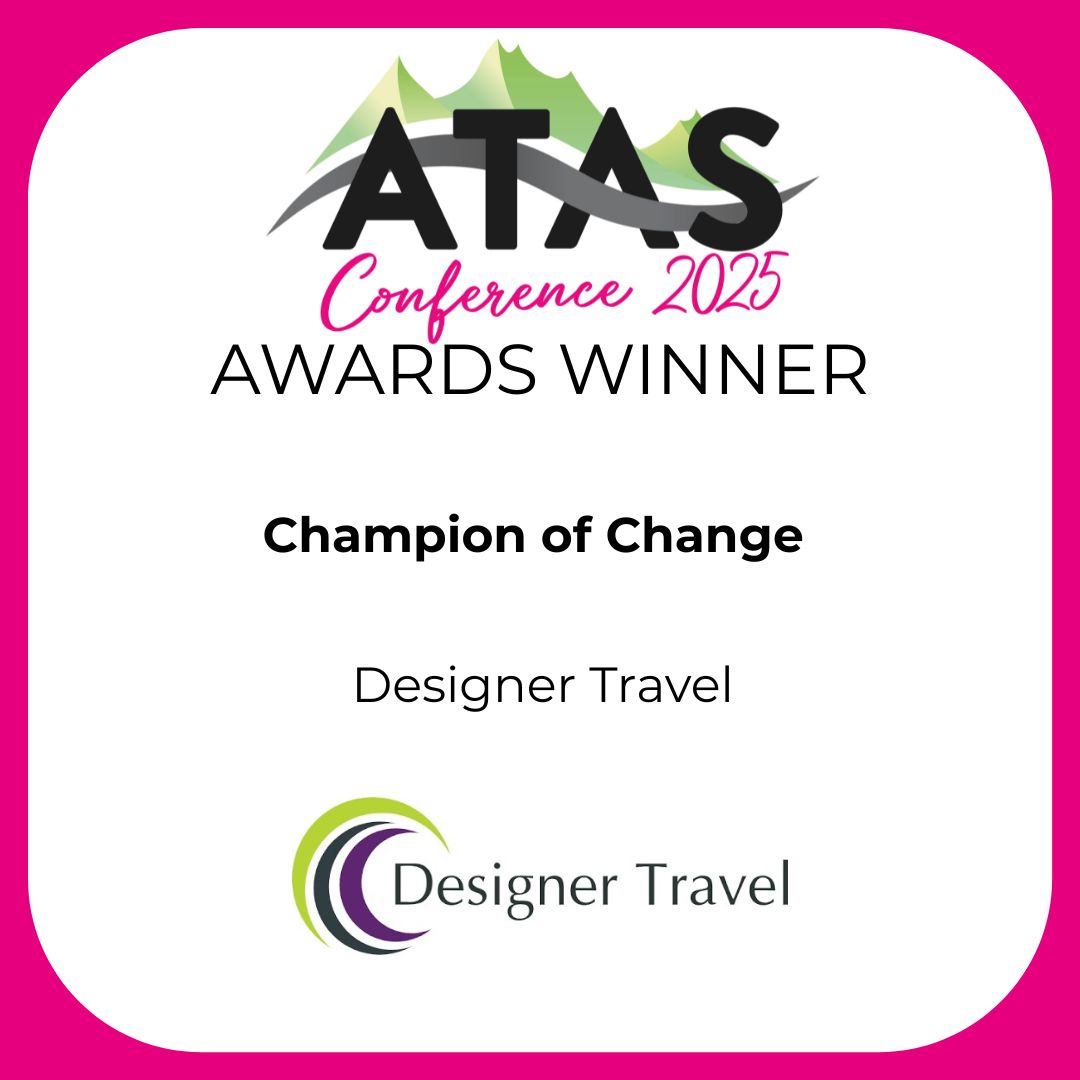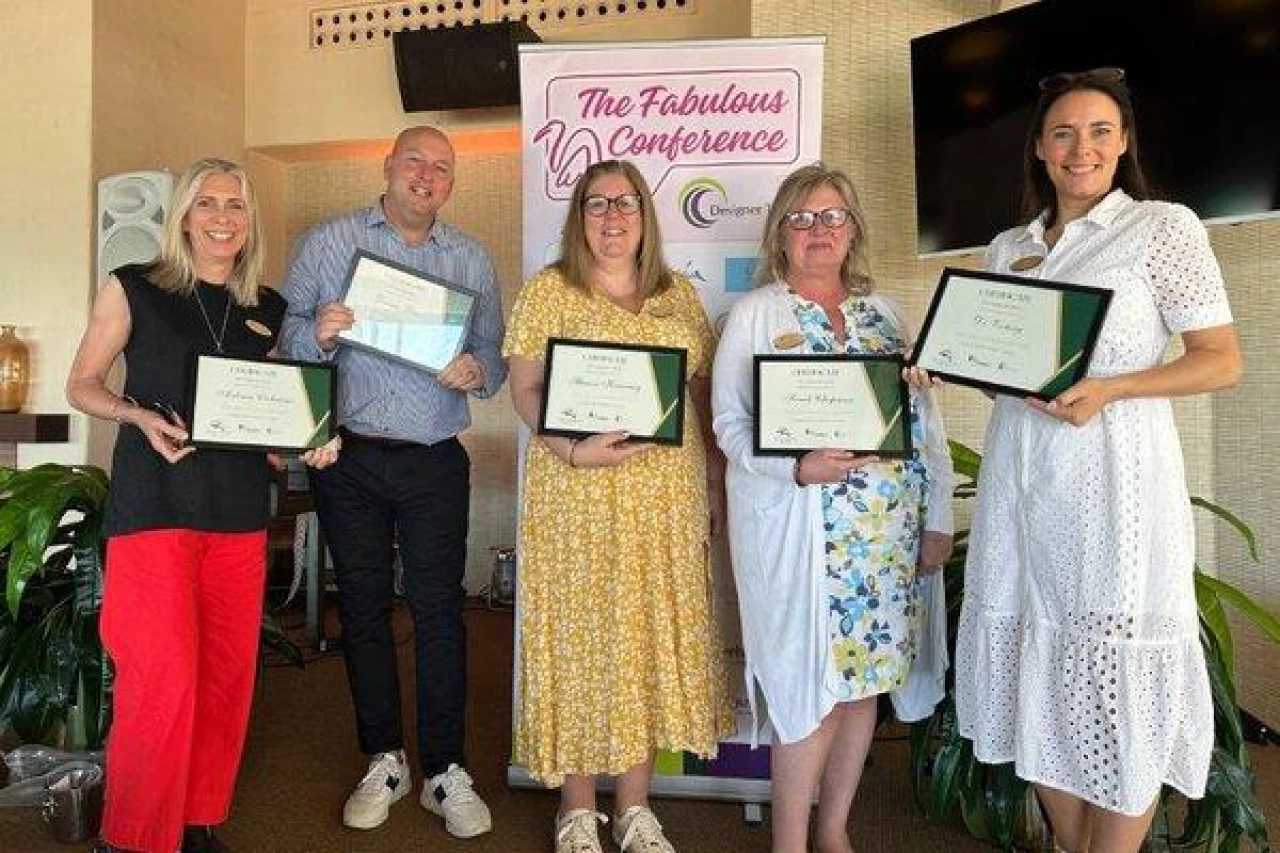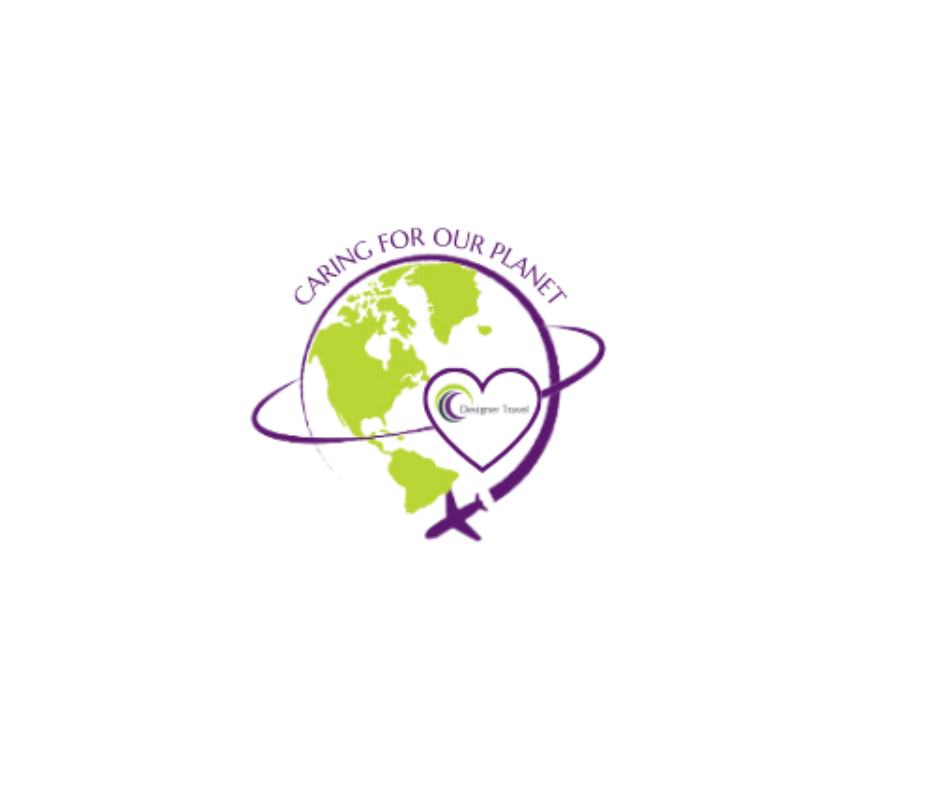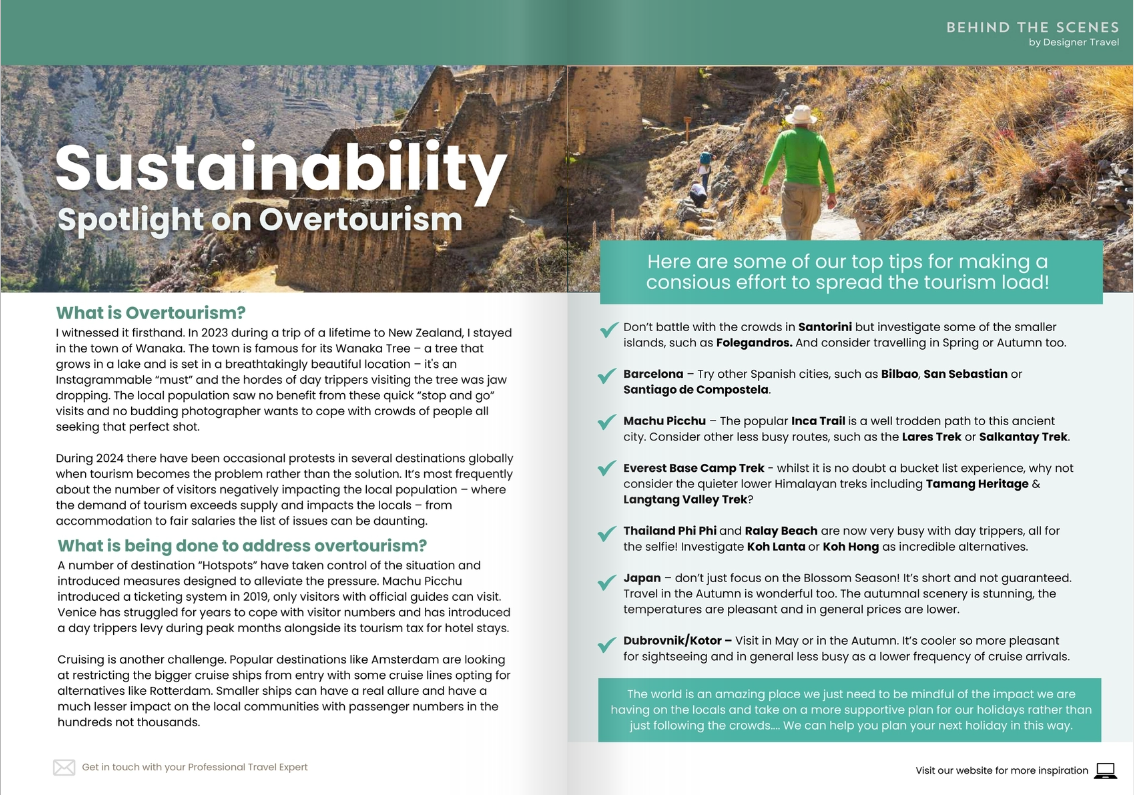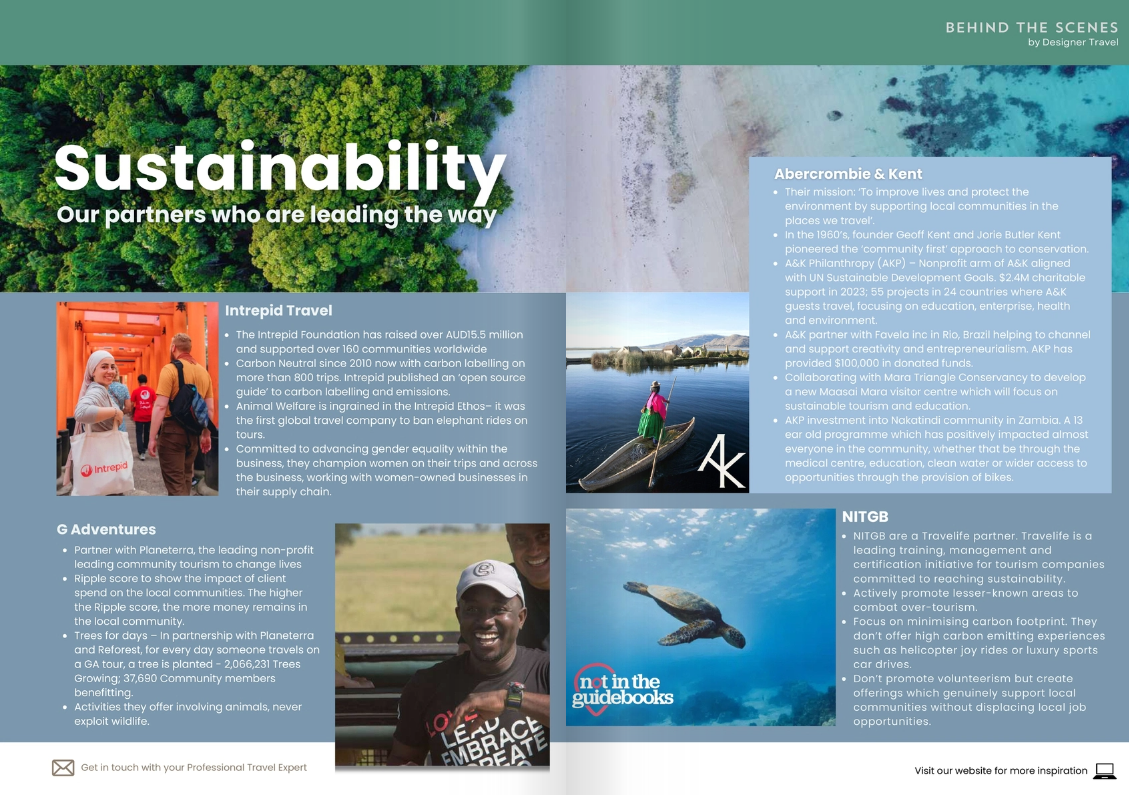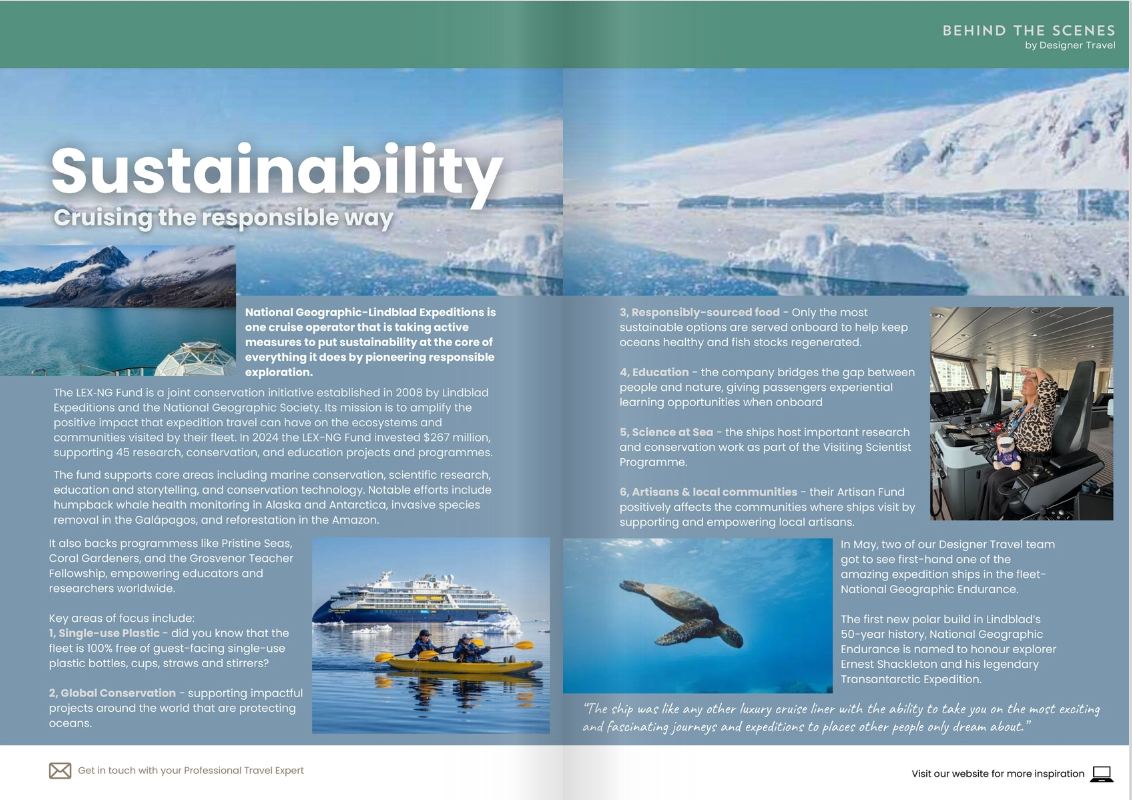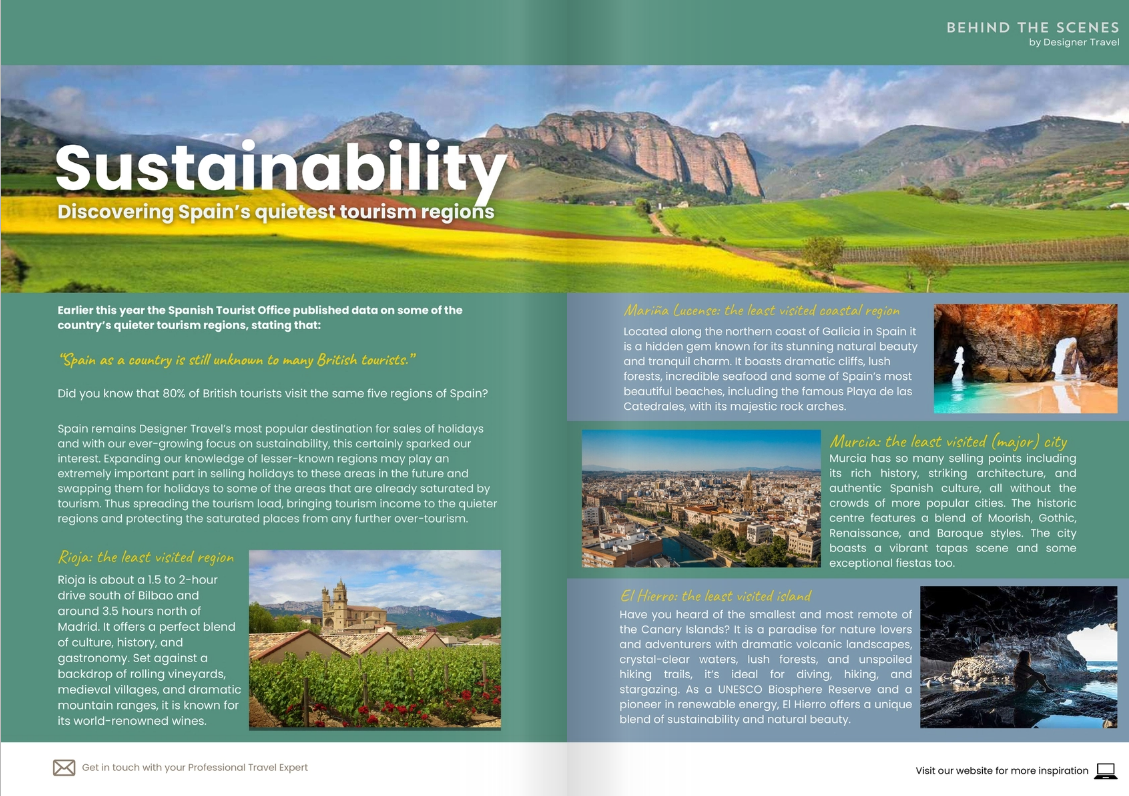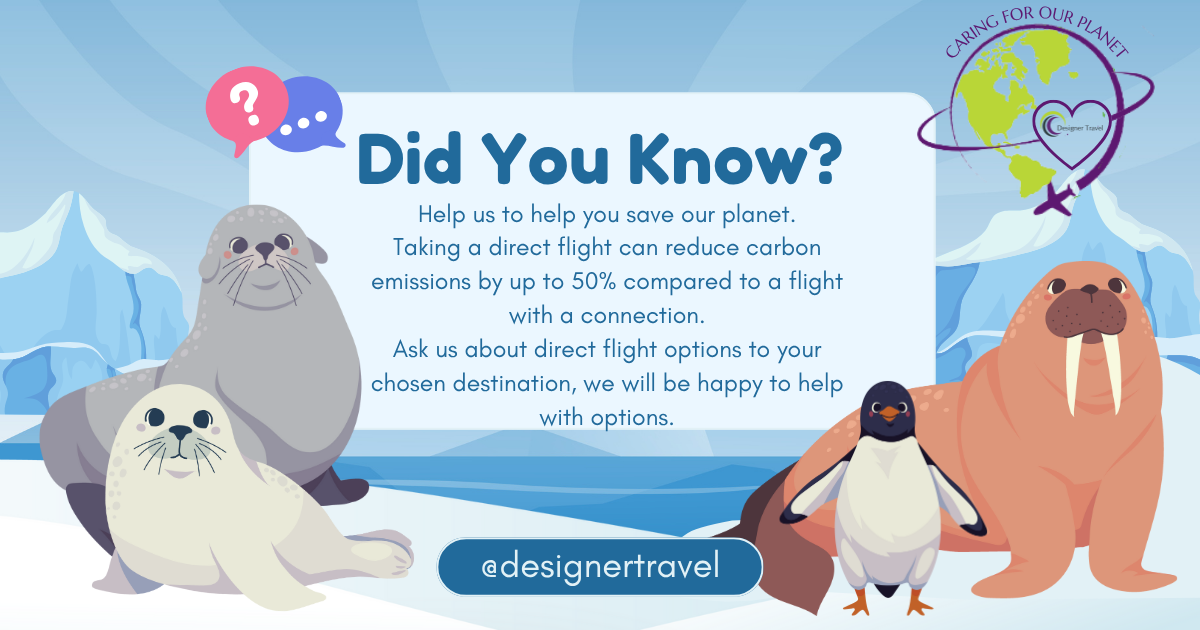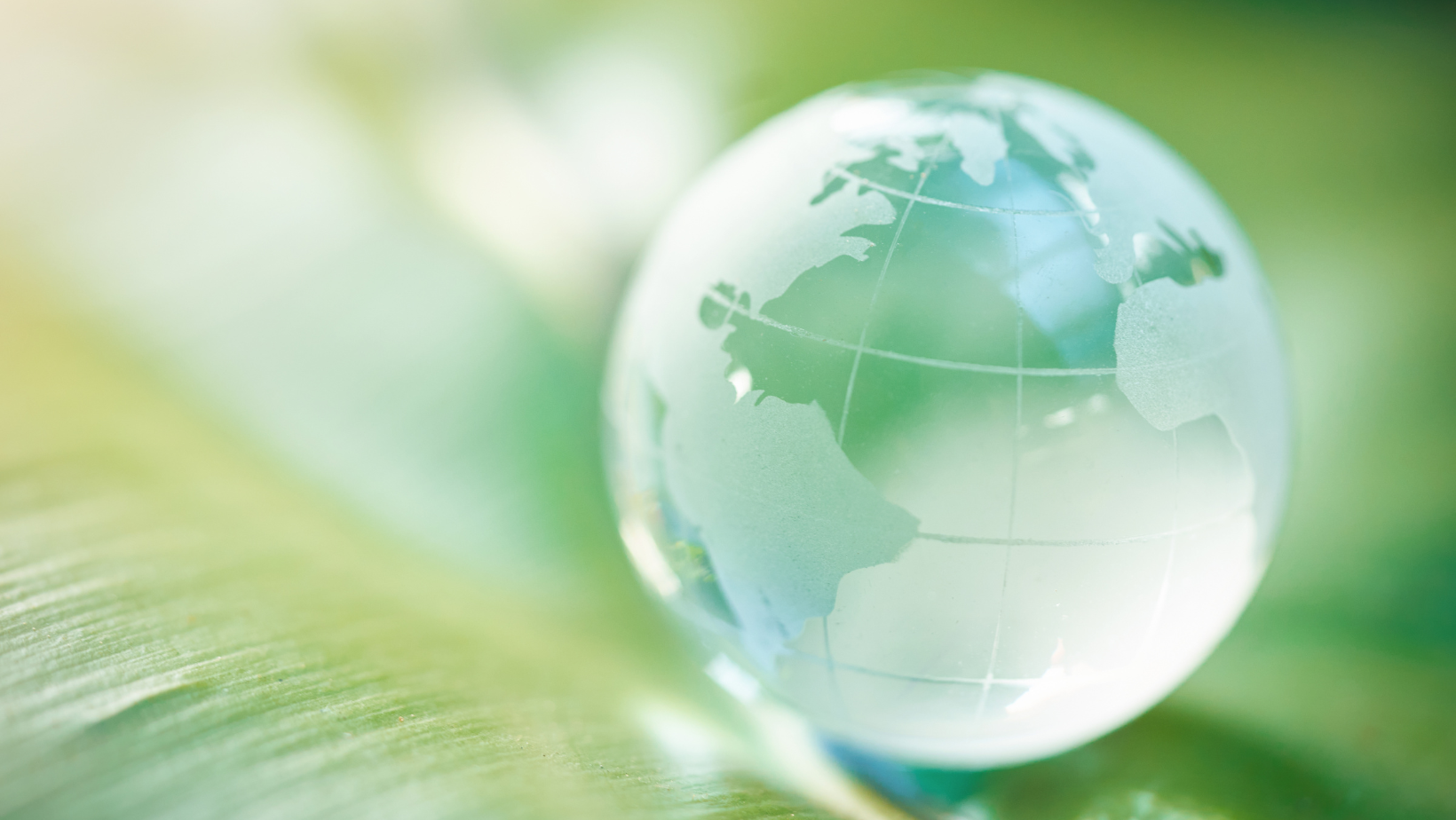
Sustainability
Little Steps...BIG IMPACT
The team at Designer Travel have taken on the challenge of making a real difference when it comes to our amazing planet. With that aim in mind, we have created our Little Steps...Big Impact story, which is told through the eyes of our baby elephant "Moyo". Moyo means heart in Swahili.
Moyo's goal is to talk about the simple steps that we can all take, both at home and overseas, to make a real difference when it comes to our environment.
We all love to travel and we want to help ensure that future generations have the same opportunities as we do.
I hope you will fall a little bit in love with Moyo and his powerful story and that you will share our challenge to make a real difference and help our amazing planet.

Travel Sustainability News
We’re proud and grateful to share that our team has been recognised at the Association of Touring & Adventure Suppliers (ATAS) in Wales, where we received the “Champion of Change” award for our focus on sustainability in travel.
For us, sustainability isn’t a buzzword it’s a passion, a responsibility, and a journey we’re committed to every day. We believe that future generations deserve the chance to experience the world in all its beauty, just as we can today.
Our commitment includes:
✅ Running accredited training programmes and dedicated supplier webinars
✅ Featuring advice and stories in our digital magazine
✅ Supporting charities and launching our own animal welfare guidelines
✅ Creating our Little Steps, Big Impact working group a panel of passionate inhouse advocates.
✅ Highlighting eco friendly hotels, activities and transport options
✅ Offering a dedicated sustainability hub on our website
There’s still much more to do, but this award is a powerful reminder that we’re moving in the right direction.
A huge thank you to ATAS for this recognition, to our partners who share our vision, and to our wonderful customers who choose to travel with us. Together, we can ensure travel continues to be a force for good -today, and for the future.
September 2025
Kiwano Tourism
In 2024 we introduced a new training opportunity which was made available to the whole Designer Travel.
The Sustainability Master Class Part, operated by Kiwano covers a number of topical issues that are really important to the travel industry globally. The course covered areas including the Carbon Story, Tourism Truths including a look at what is meant by tourism leakage, energy, gender equality, bio-diversity and life style changes.
We are delighted that we now have over 50 members of the team who have successfully completed this journey and are now working hard to keep abreast of important developments and initiatives that could help us all to look after our planet better.
The Masterclass is now available to all new recruits, which means our journey to stay informed and be able to keep our customers up to date, continues in earnest. Our recent ATAS Award was brilliant recognition of our progress when it comes to having a greater understanding of how we as a travel business can make a real difference.
Designer Travel and Sustainability
Designer Travel is committed to doing whatever we can to help look after our planet.
As one of the UK’s leading travel homeworking businesses, we are committed to working with partners who put sustainability at the very heart of their business, both in terms of strategy and more importantly in terms of demonstrating implementation.
We as an agent will do everything, we can to keep our customers informed of industry-wide sustainability policies allowing customers to make informed decisions about all of their travel choices.
Designer Travel are committed to: -
• Providing our team with regular training opportunities to learn more suppliers who have proven sustainability credentials. Our series of weekly webinars are designed to bring policies to life and give the team an opportunity to explore what operator and supplier policies mean in practise.
• Producing our own customer communication document to be sent out electronically to all customers, featuring handy tips on how everyone can make a difference to the environment they are visiting along with how to make a difference when they return home.
• Working hard to reduce the amount of paper we use in all parts of our business. This means, that we will use electronic communications wherever possible and when ever it suits the most important part of our business – our customers.
• Recycling. We know just how important it is to re-cycling as much as we possible can. We will strive to source consumables that are officially recognised as being recyclable. We will recycle in both of our Head Office buildings in Ramsbottom with every team member playing their part within their home environment.
• Improving our water efficiency. Both at our home locations and Head Office properties we will make a conscious effort to reduce our use of water and minimise waste.
• Helping to protect natural environments and the wildlife in the destinations that we trade with around the globe. We will only promote wildlife experiences that are endorsed by the locals
Our natural world – Advisory policy on animal encounters and attractions
Our planet is an amazing place. We, like many other businesses, want to do whatever we can to make a positive difference when it comes to our planet. Some actions taken may be internal and only affect our team, others may have the ability to affect a wider audience – our customers, our suppliers and ultimately the destinations we travel to.
Our goal is to do as much as we can to “leave nothing but footprints whilst making magical memories”.
Our business has an advisory policy on animal encounters and attractions of any kind. We hope you will find our policy interesting (we have also included recommendations to several different websites that may be useful) and that it provides you with some food for thought.
Wild animals are by their definition – wild. This means any encounter with wild animals should be considered carefully and only once you are fully satisfied your experience will not be detrimental to the animal, you or the environment.
Visiting Do’s
There are few greater pleasures in life than experiencing an animal encounter when animals are in their natural environment. Often referred to as INSITU – here conservation is in place in the animal's habitat.
Conservation often takes place in EXSITU – here the animals are likely to be in a realistic but protected environment.
Don’ts
Animals that are kept in captivity in an environment that does not resemble their “home turf”.
Try not to be tempted to visit animals tamed to cope with human interaction.
Riding
There are very few recognised animal facilities that encourage riding on animals. Research has moved a long way from the days when it was perfectly acceptable to accept a lift on an elephant or a trip on a camel. If you wouldn’t do something in the wild, then why consider it when an animal is in a captive environment?
Feeding
Animals know what their diet should contain and most healthy animals will be well-versed in finding their next meal. Whilst feeding a baby animal, or its mother come to that, might be viewed as “cute” it may also provoke a reaction from an animal that you are not expecting and may encourage a reliance on human visitors. Please don’t be tempted to interfere with nature.
Responsible Tourism
Be a responsible tourist. Do your homework in advance about any adventures you are planning so that you know your experience will provide the very best results for you as the visitor but equally great results for the destination you are travelling to.
Social Media
We will never knowingly promote animal attractions where animals “perform” for the general public or offer animal encounters that involve invasive human interaction.
Useful/interesting websites :
https://www.bornfree.org.uk/ - an organisation dedicated to protecting wild animals in their natural environments
https://www.wwf.org.uk/
https://awionline.org/content/what-you-can-do-wildlife
https://www.worldlandtrust.org https://www.wcs.org
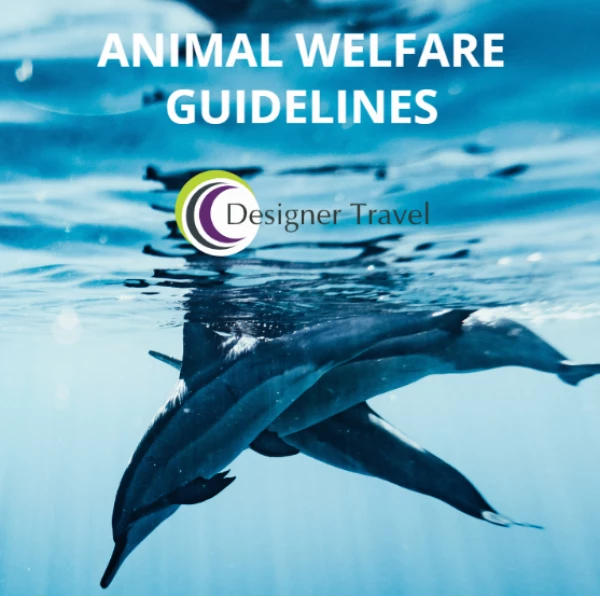
Guidelines
Animal Welfare
Please take a few moments to read our Aminal Welfare Guidelines whilst travelling
Behind the Scenes - Sustainability Features
Click the article to read more
News
Our Partners
Airline Sustainability
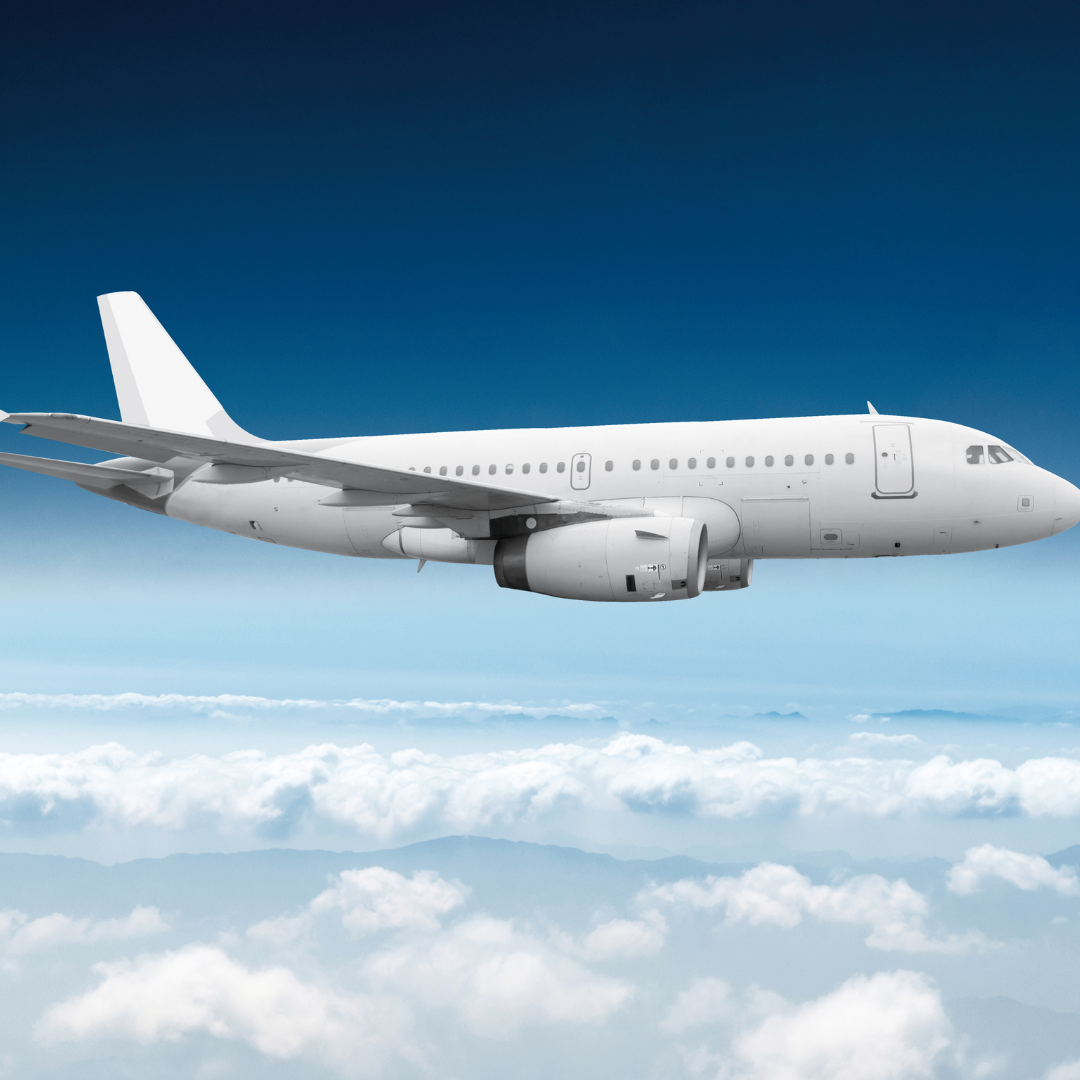
Airlines
increasing fuel efficiency and investing in biofuels and recycling programs.
Cruise Sustainability
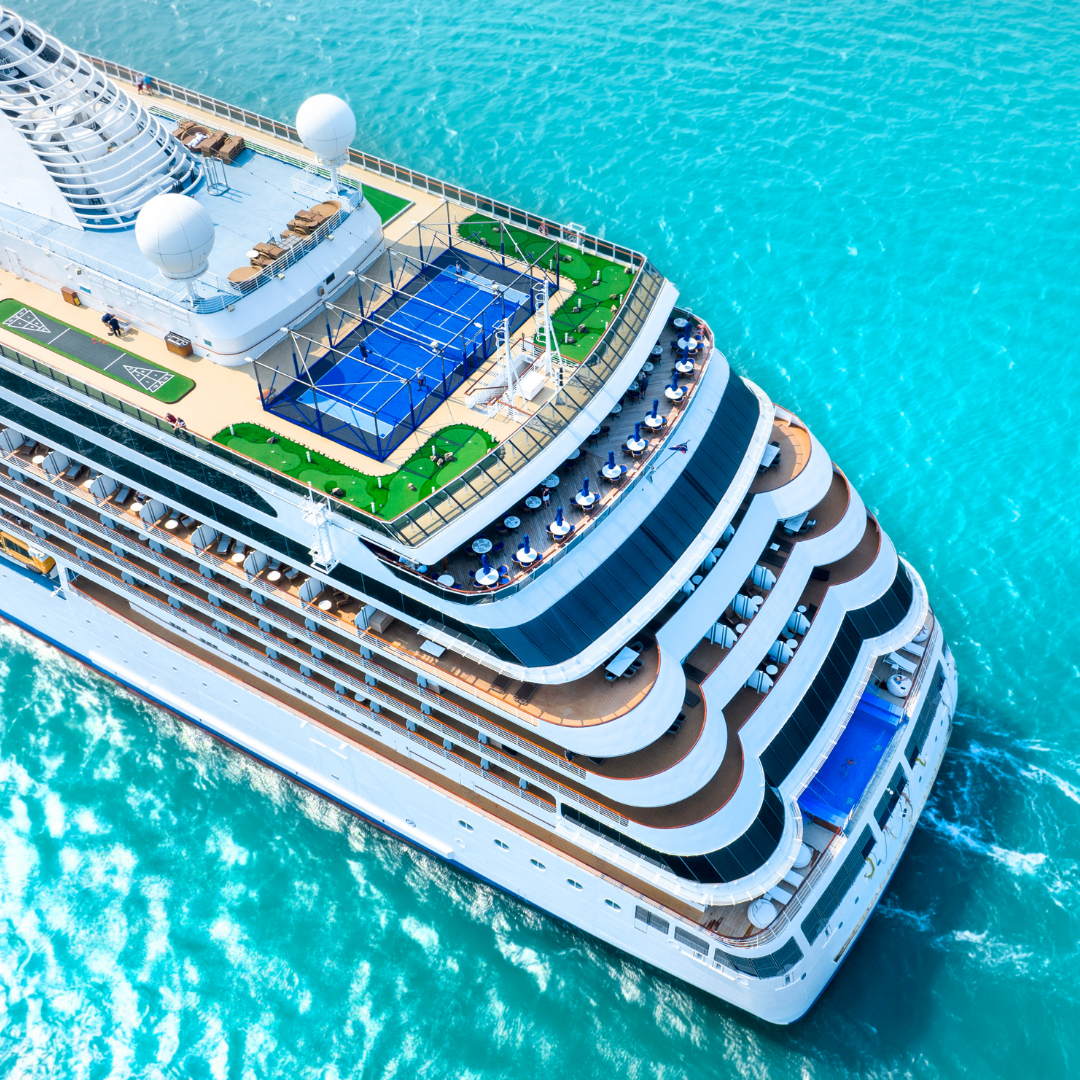
Cruise
Hotel Sustainability

Hotels
